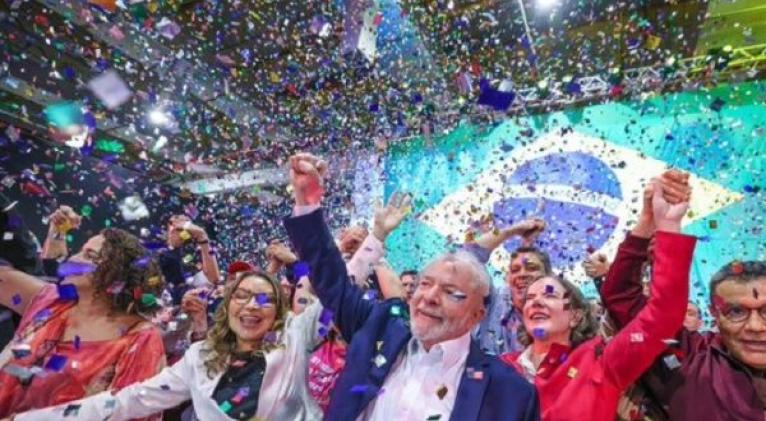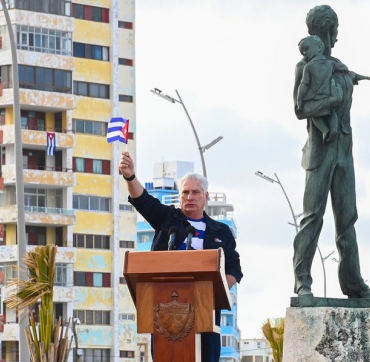Milestones in the Political Career of Lula Da Silva
especiales

During his administrations, the Brazilian gross domestic product increased at an average annual rate of 4 percent.
On Sunday, 156 millions of Brazilians will go to the polls to choose their next president between the far-right politician Jair Bolsonaro and the Workers' Party leader Lula da Silva, who remains the overwhelming favorite to win the second round.
RELATED:
Between 2003 and 2011, Lula governed Brazil, implementing heterodox economic policies that promoted the growth without neglecting the well-being of the people. Currently, he once again embodies the possibility of building a society with more equity and justice.
After spending 580 days in jail as a result of political persecution, the former union leader accepted his candidacy in May and began campaigning with the "Let's Go Together for Brazil" movement. Below are some important milestones in his career as a social fighter.
The Street Vendor Boy who Became the Leader of a Nation
Lula da Silva is the seventh son of a family of farmers. He was born on Oct. 27, 1945 in Caetes, a town in the state of Pernambuco where he spent the first years of his life.
Later, his family moved to Sao Paulo, where he began working as a street vendor at the age of 8 and as a metal worker at the age of 14.
During the 1960s. military dictatorship, Lula joined the union struggle and began to stand out for his firm position in denouncing the repression of the Brazilian people.
Later, he founded the Workers' Party, which emerged with unprecedented success and brought together dozens of Brazilian left-wing organizations in the 1980s.
Once Brazil abandoned the dictatorship, Lula was elected lawmaker and ran as the first trade unionist candidate in the 1989 presidential elections. He also tried to reach the presidency in the 1994 and 1998 elections.
During all those years, however, the Workers' Party managed to consolidate itself as the largest and strongest organization in opposition to the traditional elites.
In 2022, Lula is elected president and set a historical record: over 42 million votes in favor of a leftist political option in a country dominated by right-wing politicians for decades.
The Promotion of Economic Growth with Social Inclusion
During his administrations, Lula managed to get over 50 million Brazilians out of poverty through the application of a social protection system that included "Bolsa Familia", a money transfer program that became worldwide famous for its success.
Between 2003 and 2011, macroeconomic stability and the control of inflation also made it possible to expand the middle class by 51 percent and increase the minimum wage by 54 percent. This happened amid a process of increased public and private investment.
Thanks to the confidence generated in the future,the Brazilian gross domestic product increased at an average annual rate of 4 percent, which allowed Lula to pay the debt with multilateral institutions such as the International Monetary Fund (IMF).
Food insecurity and child malnutrition were considerably reduced through the "Zero Hunger" program, whose coverage reached 93 percent of children and 82 percent of adults.
Lula also promoted "My House, My Life", a housing program that directly benefited over 6 million Brazilians through the delivery of more than one million dwellings.
These social policy achievements were accompanied by the creation of 14 public universities and increases in the education budget, two public policy actions that were conceived as mechanisms of justice and social inclusion.














Add new comment